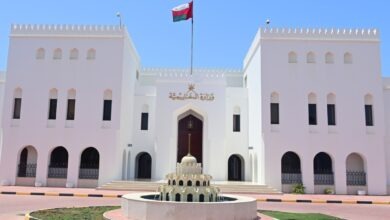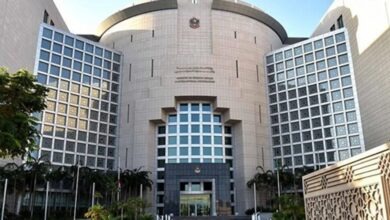S&P expects Kuwait to record lowest positive growth rate in GCC

S&P Global Ratings expects Kuwait to record the lowest average real GDP growth rate among GCC countries in 2024, despite expectations of an increase this year compared to 2023. Data published by the agency showed that Kuwait will record the lowest positive growth rate in the GCC, while only Saudi Arabia is expected to achieve negative growth on a GCC scale for the same year.
S&P Global Ratings believes that most companies and infrastructure entities in the GCC are benefiting from supportive credit conditions in their local markets, despite weak global economic growth, rising interest rates, and significant geopolitical risks in the Middle East.
Resilient credit profiles
Rawan Owaidat, an analyst at the agency, said that “most credit ratings of GCC companies and infrastructure entities will remain resilient in the face of weak global economic growth and rising interest rates in 2024.”
She expects earnings before interest, taxes, depreciation, amortization, and capital expenditures to continue to grow overall, reflecting largely the ambitious economic development plans of rated companies. As a result, companies are expected to maintain their credit metrics without significant change, or they may see a slight improvement.
Manageable refinancing risks
Owaidat added that “we believe that refinancing risks are largely manageable for our portfolio of rated companies and infrastructure entities, as 75-80% of debt due in 2024 is from government-related entities with high credit ratings.”
In addition, the level of absolute debt reported by issuers from both government-related and non-government-related entities in the region is relatively stable.
Under S&P’s base case scenario for 2024 and 2025, “total reported debt will barely change, despite large spending needs.” The agency also expects oil and gas and petrochemical companies’ earnings to recover in 2024.
Non-oil sector growth
Tatjana Leskova, an analyst at the agency, expects non-oil sector profits to grow by about 7% in 2024, compared to 15% in 2023.
Sofia Bensaid, an analyst at the agency, said: “For issuers from infrastructure entities, we expect an acceleration in the implementation of various decarbonization initiatives following the Conference of the Parties to the United Nations Framework Convention on Climate Change (COP28), with a gradual return of financial markets to refinance debt.”
Bensaid added: “We expect infrastructure assets in the GCC to remain resilient to market risks during 2024, as they often benefit from long-term concessions that mitigate these risks entirely.”
Stable outlook for credit ratings
Sabna Jagtiani, an analyst at the agency, said: “Our forward-looking view for over 95% of our rated companies and infrastructure entities in the GCC is stable, which confirms our view that credit ratings will remain resilient in 2024. However, this also means that we will see limited credit rating upgrades this year.”
Credit pressures
Credit pressures could arise for companies operating in cyclical sectors and making large investments if this leads to an increase in their leverage ratios. Rising geopolitical risks in the region also pose a risk to companies that rely on consumer confidence.













